Do you know what foods have very little carbohydrate? Let's find out!
Medically reviewed by Dr Sultan Linjawi, Endocrinologist & Diabetes Specialist — January 2026
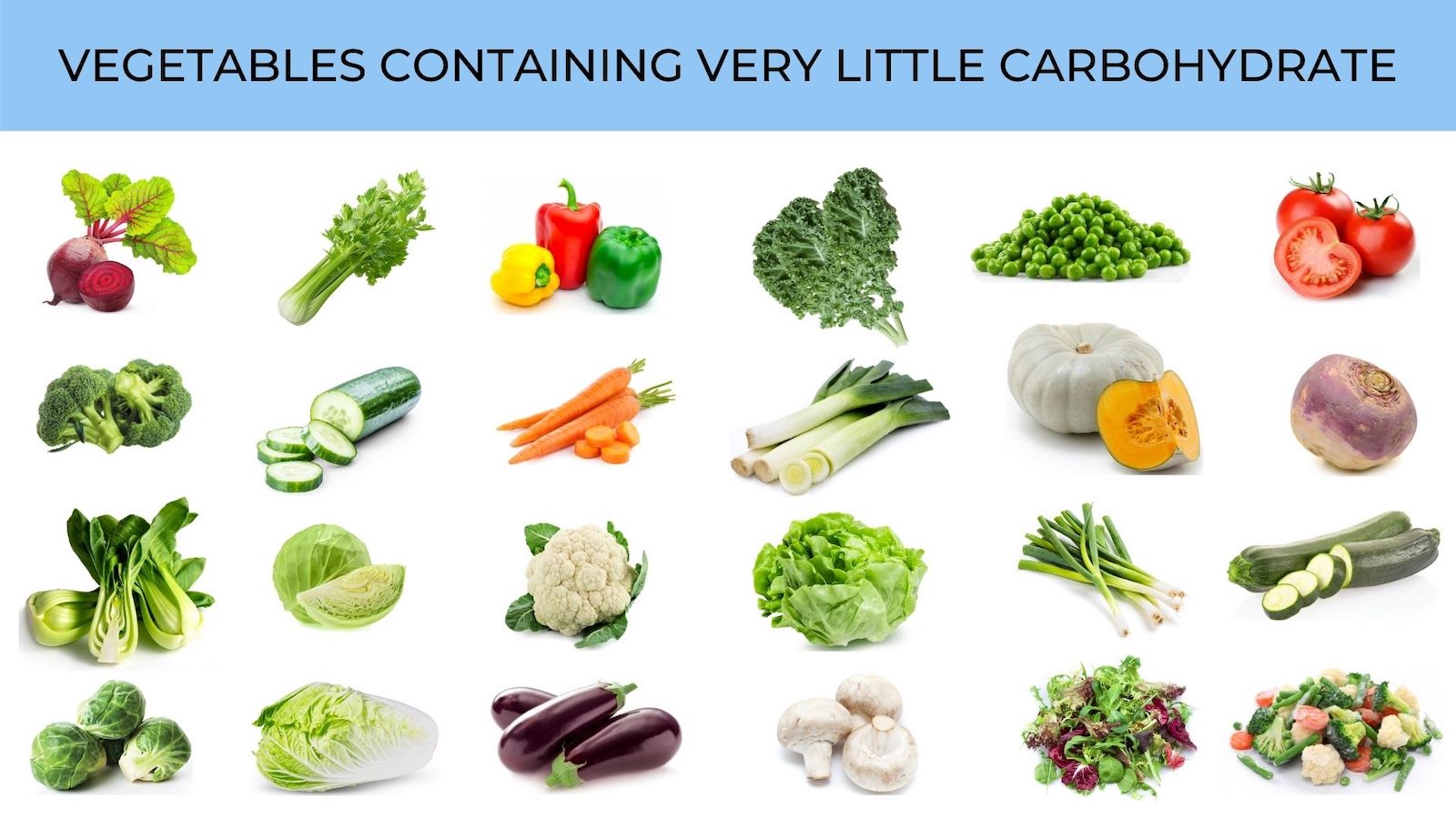
If you have diabetes, you may think that you should be following a special Diabetic Diet.
Not necessarily!
If you have diabetes, it doesn’t mean that you have to buy all these special foods or follow a special diabetes diet.
A healthy diet for people with diabetes is very much the same as a healthy diet for people without diabetes! This includes choosing foods that are high in fibre, a variety of lower carbohydrate containing fruits and vegetables, choosing lean cuts of meat, and reducing your intake of foods that are high in sugar, salt, and fat. This can be done by limiting the amount of processed food you consume.
Improving your carbohydrate awareness
When you are prediabetes, type 2 diabetes, type 1, or gestational diabetes, it is important to be aware of what foods contain carbohydrates. Some foods contain very little carbohydrate, for example broccoli, avocado, beef, chicken. Foods like bread, milk, corn, and bananas all contain carbohydrates.
Why do I need to know what foods contain carbs?
It's important to understand which foods contain carbohydrates, because carbohydrates, or carbs, can have a huge impact on your blood glucose levels if you have prediabetes (sometimes called borderline diabetes), type 1 diabetes, or type 2 diabetes.
If you would like to understand what carbohydrates are, you can read more about carbohydrates and diabetes. In the article it explains that different types of carbohydrates (glucose, starches, and dietary fibre), how carbohydrates effect blood glucose levels, as well as talk more about carbohydrate counting.
Don't forget: a person with diabetes, can still eat carbohydrates!
15g carbohydrate = 1 carbohydrate portion
Understanding carbohydrate portions is important for managing blood glucose levels and can be used as a strategy for weight reduction and maintenance.
One serving of carbohydrate is measured as 15 grams. A food that contains 15 grams of carbohydrate is also called “one portion of carbohydrate” or simply “one portion.” You can use portions of carbohydrates to help with your carb counting.
Your doctor or dietitian may set you an amount of allowable portions of carbohydrates you can consume in a day. This will depend on your age, if you’re trying to lose weight, and your activity levels. Generally speaking, Dr Sultan recommends 10-12 portions for men and 6-9 portions for women.
What fruit is lower in carbohydrates?
In the What are the best fruits for diabetics video, Dr Sultan mentions that strawberries are lower in carbohydrate compared to bananas. But what other fruits are low in carbs?
Some examples of fruits with very little carbs include:
- avocado
- apricots
- nectarines
- grapefruit
- orange
- lemon and lime
- blueberries
- blackberries
- strawberries
- passionfruit
- guava
- pineapple
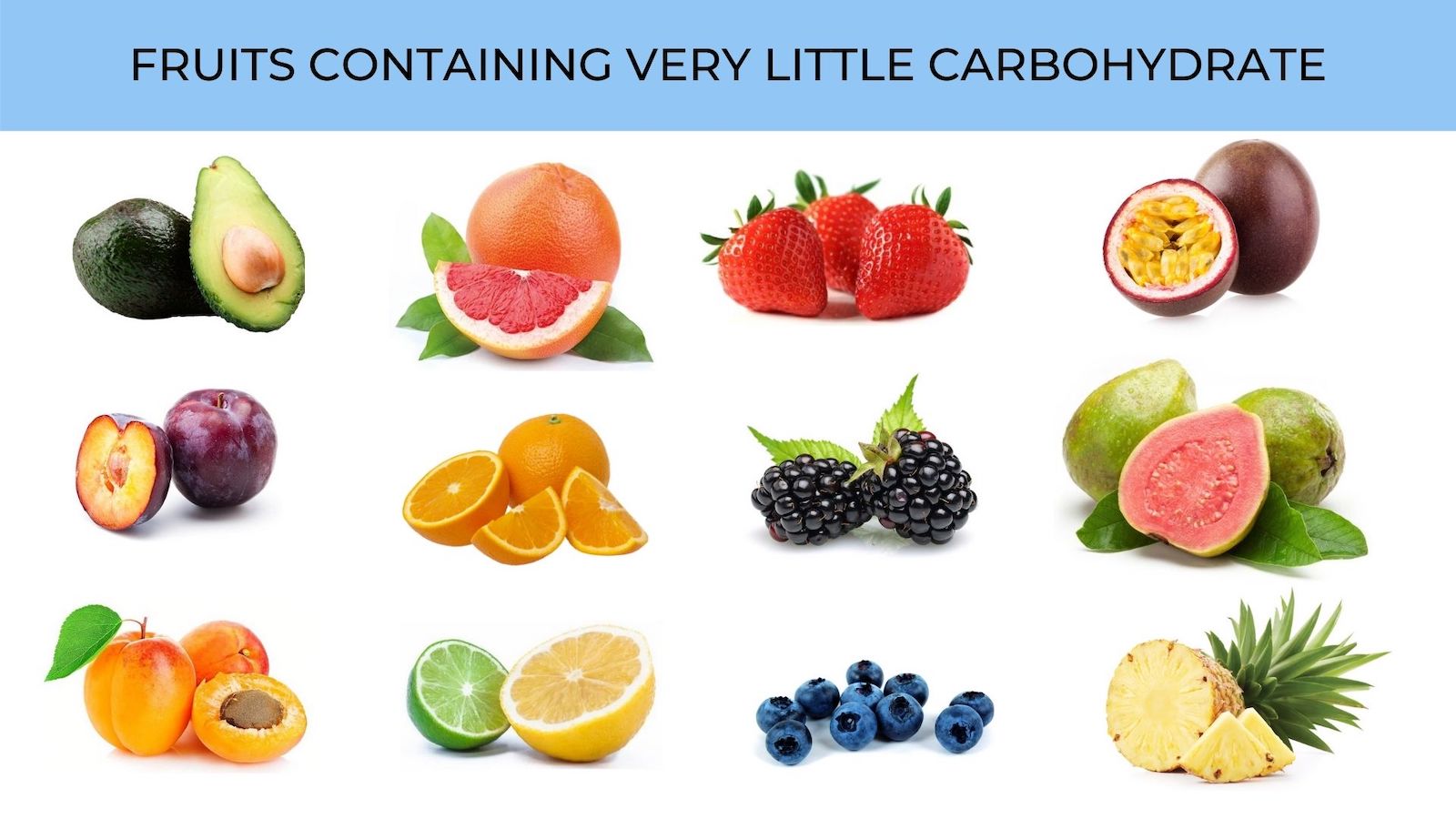
What vegetables are lower in carbohydrates?
Vegetables with low carbohydrates include:
- beetroot
- celery
- carrot
- zucchini
- frozen vegetables
- salad leaves, for example spinach, rocket, mescalin lettuce

Protein foods with little carbohydrate
Protein foods with little carbohydrate include:
- fish, for example salmon and tinned tuna
- chicken
- plant-based protein, for example tofu and nuts like almonds
- roast meat, for example beef, pork, chicken
- deli meat, for example roast beef or ham slices
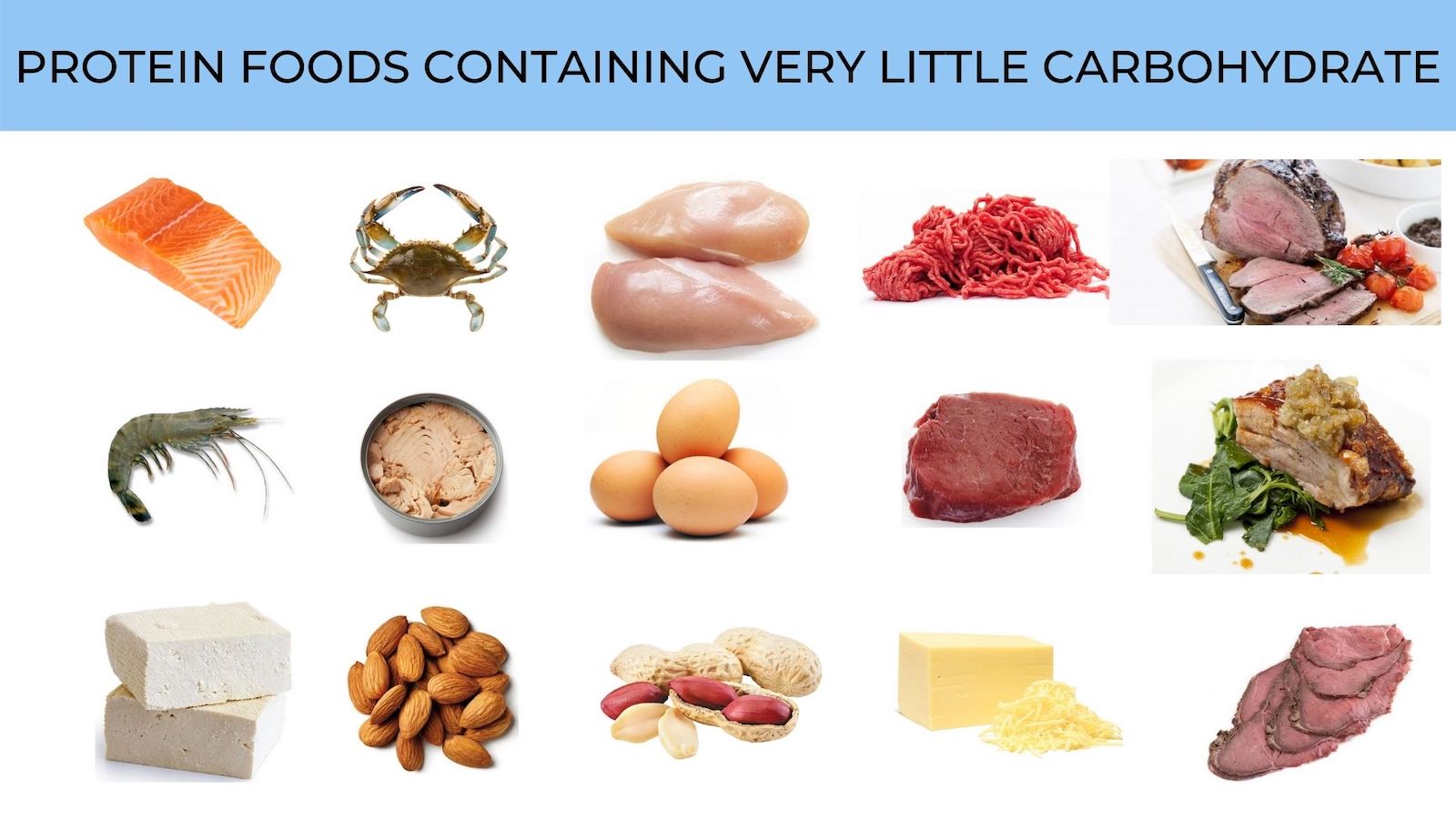
Important to remember!
While some of these protein foods are low in carbohydrate, they may still be high in fat and salt, both of which can impact on your health and diabetes. For example, deli meat is highly processed and be high in fat and salt. When buying meat at the supermarket or butcher, choose lean meats where possible.
Fats and oils with little carbohydrate
Fats and oils naturally contain very little carbohydrate.
Fats and oils with little carbohydrate include:
- olive oil
- coconut oil
- butter and margarine
- nuts, for example peanuts, almonds, and walnuts
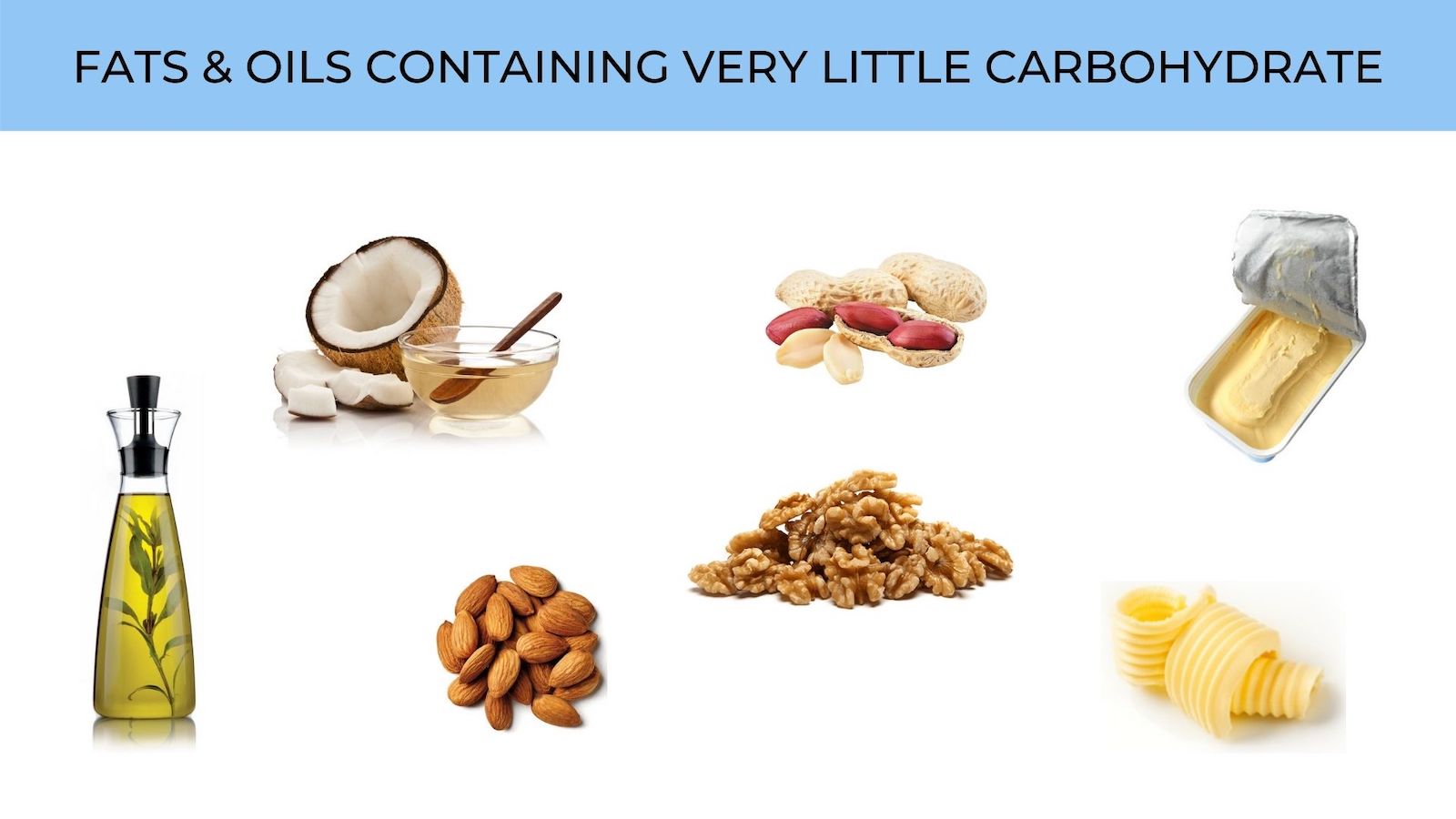
Important to remember!
Consumption of fats and oils should be kept to a minimum as they can contribute to weight gain.
Condiments, sauces, and drinks containing little carbohydrate
Some condiments, sauces, and drinks containing little carbohydrate include:
- water
- black tea and coffee
- salt and pepper
- peanut butter
- vegemite
- garlic
- ginger
Important to remember!
While some condiments, sauces, and drinks contain little carbohydrate, like with fats and oils, they may still contribute to weight gain. For example, Dr Sultan talks about how a coffee might contribute to weight gain without you even realising!
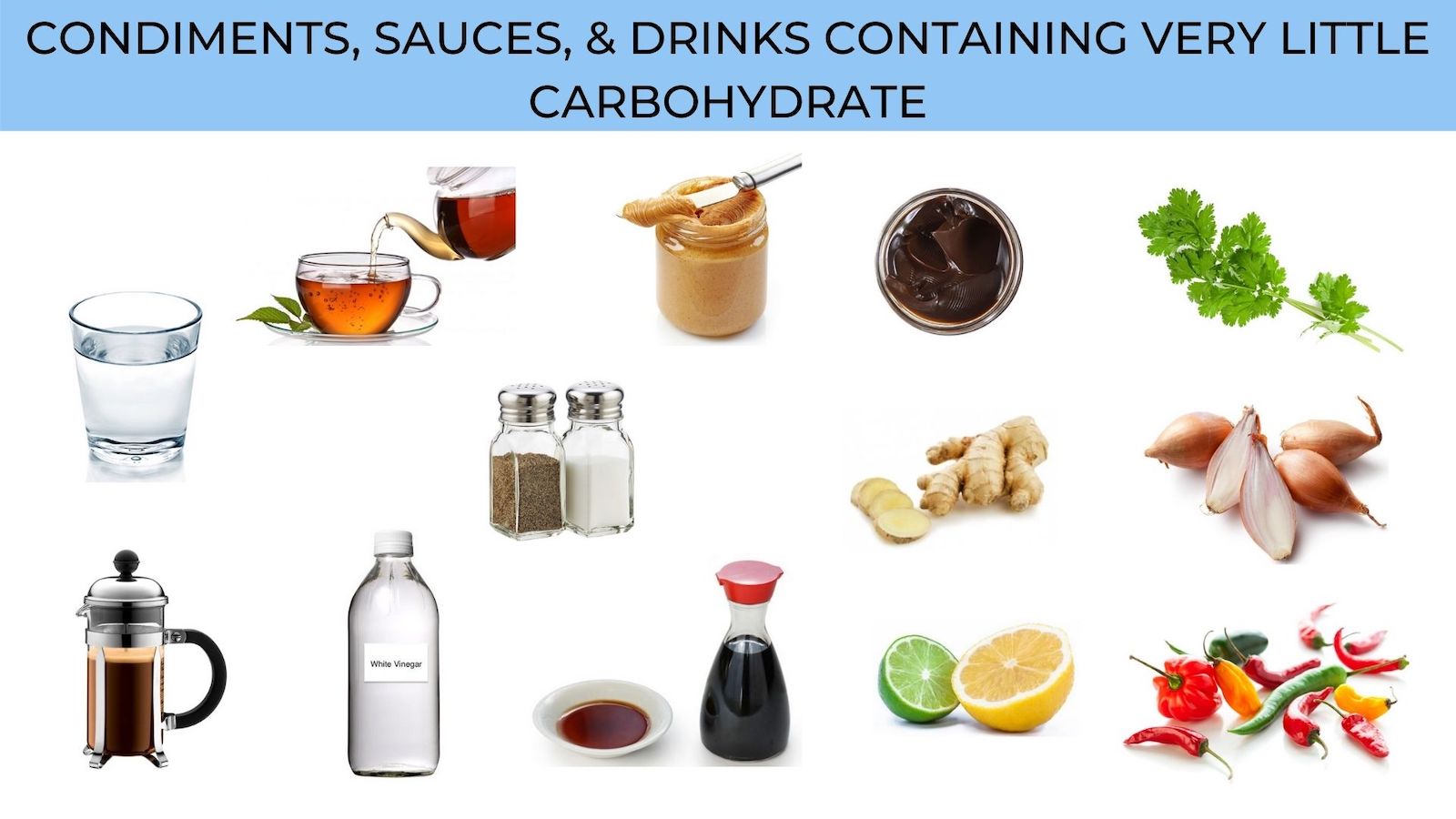
Do I have to follow a low carb diet?
Some people wonder, "do I have to follow a low carb diet if I have diabetes?"
The short answer is no!
Some people with Type 2 Diabetes may find a low carb diet useful in managing their weight, and this has shown to be effective and reasonably safe, in short term trials.
The best dietary strategy for weight management is whatever you can stick to. If you think low carb is something that’s easy to follow, helps you lose weight and manage you blood glucose levels, then it could be the right diet for you.
Often, people find it difficult to stick to very low carb diets (also known as a ketogenic diet) and find a more moderate carbohydrate approach is easier (that is around 130g carb each day).
Tips on reducing carbohydrates in your diet
If you need ideas on how to reduce the carbohydrate content of some of the food that you eat, check out the article how to reduce carbs in your diet to give you some inspiration. For example, you could try combining cauliflower or broccoli into your mashed potato. Still the same great taste while being able to reduce your carbohydrate portions at dinner time.
What are some healthy food choices I can make as someone with diabetes?
Some healthy food choices you can make if you have diabetes include:
- Eat regular meals
- Reduce your portion sizes
- Reduce food that contain saturated fat
- Go for the healthy fats instead
- Increase your fibre intake
- Drink alcohol in moderation
- If you're overweight or obese, losing weight can make a huge difference
For more information on how to incorporate these changes into your diet, read the Diabetes diet: what should I eat if I have type 2 diabetes?
Remember the following when considering a low carb diet if you have diabetes:
- Low carb diets are not recommended for children to manage diabetes, they can be detrimental to growth
- It is important to discuss your diet regularly with your diabetes dietitian and doctor, as they can provide you with practical and evidenced based advice.
- Blood glucose should be monitored closely if you do choose to follow a low carb diet, particularly if you take insulin or other medications.
- Reducing carbohydrates can have effects on other nutrients, such as fibre, vitamins and minerals, so it’s important to seek professional advice.
Find the Right Program for You
Select the situation that best describes you



